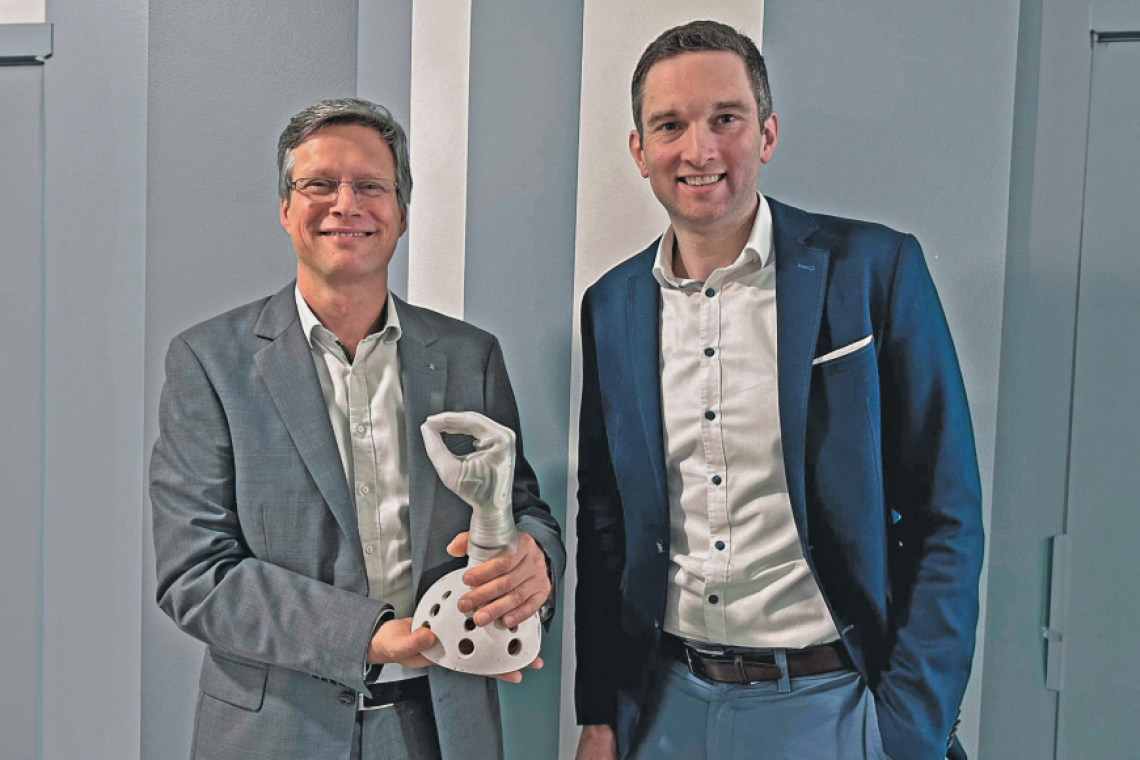The Fraunhofer Institute IPA and the technology company Q.ANT are founding the Human-Machine Interface Competence Center. New prosthesis prototypes are to be developed in this center with experts from research and industry.
On March 7, the Fraunhofer Institute for Manufacturing Engineering and Automation IPA and the technology company Q.ANT signed a contract to establish the Human-Machine Interface Competence Center. The aim of the cooperation is to detect the finest nerve signals from muscle activity and interpret the resulting information in order to control machines and devices. This could make it possible to control hand prostheses intuitively in the future. Magnetic field sensors based on quantum technology play an important role in prosthetics. They can be used to read biosignals. The partner company Q.ANT specializes in quantum technologies for sensors and computing. The new competence center is based in Stuttgart-Vaihingen and brings together around 15 experts from research and industry. They want to control prosthetic hands and even healthy limbs using neuronal impulses. Fraunhofer IPA contributes expertise in this field of biomechatronics to the partnership. Q.ANT has been developing a magnetic field sensor based on quantum technology for five years. It is characterized in particular by a combination of sensitivity, size and operation at room temperature. The scientists at Fraunhofer IPA will characterize biosignals in order to then program corresponding algorithms that convert the sensor data into control commands for the prosthesis. The institute will also carry out the corresponding series of tests with patients, the results of which will be incorporated into the development of the prosthesis prototypes.
www.ipa.fraunhofer.de
www.qant.com


